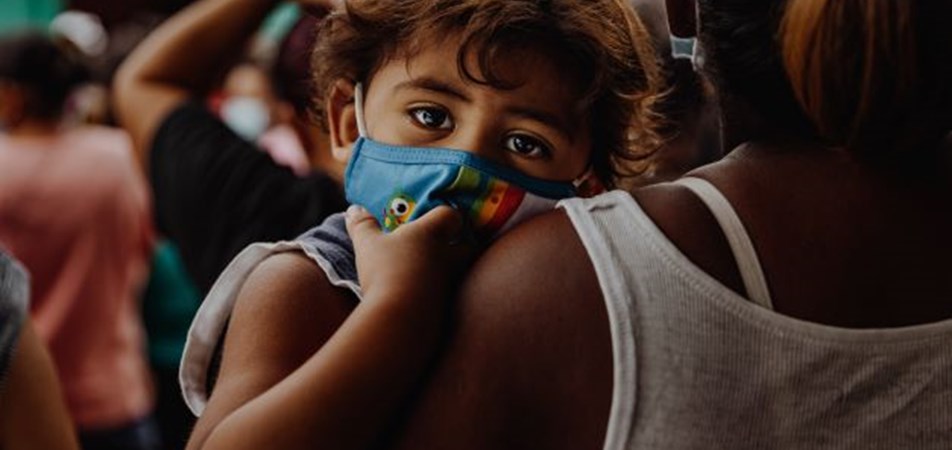To recover your password please fill in your email address
Please fill in below form to create an account with us

30/08/21
A common blood pressure medication is at the centre of a new COVID-19 treatment clinical trial led by a collaboration of the NHMRC Clinical Trials Centre at the University of Sydney and The George Institute for Global Health (India, Australia, and the UK).
The CLARITY trial is investigating a low cost, widely available blood pressure treatment used worldwide for more than 30 years. The drugs, called angiotensin receptor blockers or ARBs, are thought to interfere with the way the COVID-19 virus infects cells.
“The SARS-CoV-2 virus down-regulates and suppresses certain anti-inflammatory effects and that may tip the local lung environment towards inflammation and fibrosis, and might be why the virus has such a devastating effect on lung tissue,” says Study Chair Professor Meg Jardine from the NHMRC Clinical Trials Centre at the University of Sydney. “Some inflammatory pathways interact with the blood pressure system, which is why these common blood pressure medications may improve outcomes in COVID-19.”
CLARITY is recruiting patients in Australia and India who are diagnosed with COVID-19 and admitted to hospital, or are at high risk of severe disease and being monitored at home. Participants are treated for up to 28 days and then followed for a total of 90 days.
A PRAGMATIC APPROACH
There are significant difficulties in running a clinical trial during a pandemic, especially where the healthcare system is under substantial pressure. “COVID-19 has highlighted the importance of investing in research infrastructure. We need skilled research systems in place to be able to mount an agile response to an unanticipated threat,” Professor Jardine comments.
The CLARITY trial was designed to accommodate these complexities. “Research delivery has additional challenges within the global pandemic setting” explains Program Manager, Arlen Wilcox. “CLARITY uses pragmatic approaches and an innovative adaptive sample size design to ensure high quality evidence is generated efficiently and effectively.”
Co-Scientific Lead, Dr Sradha Kotwal, agrees, “CLARITY is a simple trial embedded within routine clinical care processes, ensuring low site and patient burden. A pragmatic approach fosters effective research delivery in the pandemic setting, with overburdened health care services globally.”
FINDING EFFECTIVE, LOW-COST TREATMENTS REMAINS A PRIORITY
Despite the availability of COVID-19 vaccines, case numbers and hospital admissions remain high in many parts of the world. Co-Scientific Lead, Dr Abhinav Bassi, reflects on the local impact of COVID-19 in India: “Record-breaking case numbers and an acute shortage of beds, oxygen, and drugs during the second wave of COVID-19 in India became a cautionary tale for the entire world. CLARITY hopes to provide evidence on a simple, widely available, low-cost treatment option.”
Co-Scientific Lead, Dr Carinna Hockham, adds, “Whilst we are in the fortunate position in the UK of having more than three-quarters of the population double-vaccinated, we currently have around 32,000 new cases and almost 1,000 hospital admissions every day. We clearly have a long way to go to limit the devastating impact of COVID-19, both here and around the world.”
COST-EFFECTIVE STRATEGIES TRANSLATED QUICKLY INTO ROUTINE CLINICAL CARE
ARBs are a simple tablet treatment, not requiring specialised storage or transportation. Their safety profile is well-established, and clinicians worldwide are familiar with their prescription and management. They are produced globally by multiple manufacturers and are therefore relatively resistant to supply shortages. Re-purposing existing medications is an attractive strategy as, once verified to be effective through randomised trials, the trial results can be rapidly implemented.
“The evidence generated from the CLARITY trial is expected to lead to development of cost-effective strategies that can be quickly translated into routine clinical care in all geographies, including in resource-limited settings,” reflects Study Co-Chair, Professor Jha, Director of The George Institute, India. At a time when the world is grappling with the delta variant, the timing could not be better for efficient research into a medication that is readily available in a wide range of resource settings.
The CLARITY trial protocol is published in the open-source journal Trials here.
The CLARITY trial has been funded by the National Health & Medical Research Council/Coronavirus Research Response - 2020 Respiratory Medicine Clinical Trials on COVID-19 (MRFF) grant scheme.
For further information on the CLARITY Trial, please direct queries to clarity.study@sydney.edu.au.